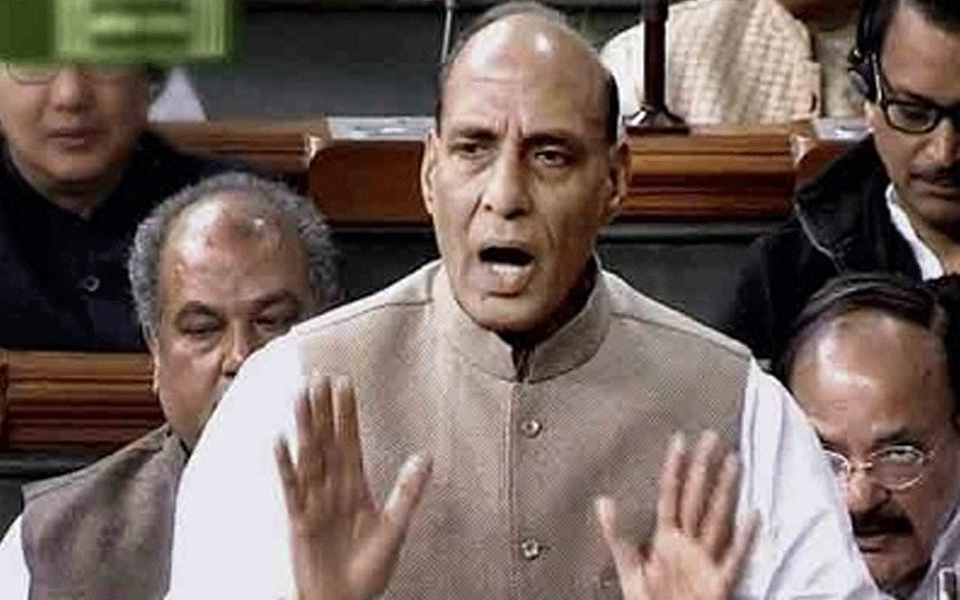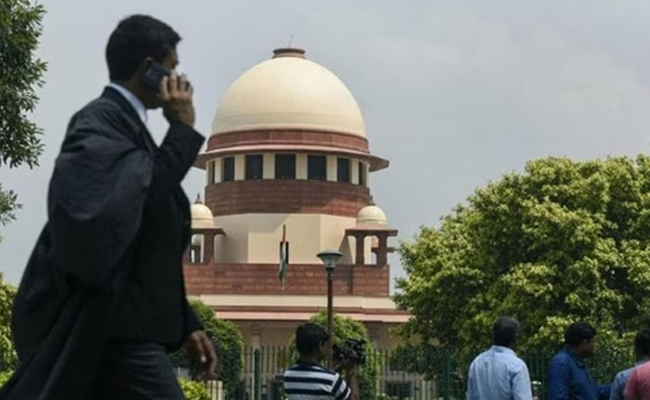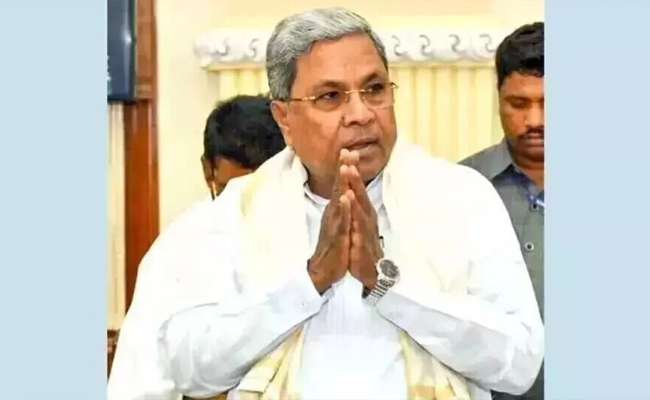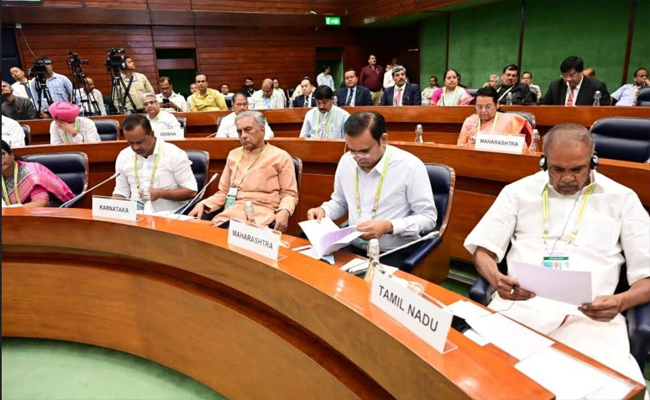New Delhi, July 24 : Union Home Minister Rajnath Singh on Tuesday said that the BJP-led Central government has fulfilled "around 90 per cent" of the commitments made under the Andhra Pradesh Reorganisation Act, 2014, and was committed to fulfil the rest "at any cost".
"Our government will fulfil all the commitments made not only by our Prime Minister but also those made by former Prime Minister Manmohan Singh," he said in Rajya Sabha while replying to a short duration discussion on the implementation of AP Reorganisation Act that carved out the state of Telangana out of Andhra Pradesh in 2014.
The Telugu Desam Party (TDP), a former NDA coalition partner, had asked for a discussion on the issue, alleging that "justice" was not being done with the residuary state of Andhra Pradesh in terms of granting it special category status.
In his reply, Rajnath Singh said that he could not understand why some members were stuck with the word "special category status" when the Centre was actually giving Andhra "even those incentives not mentioned in the Act".
"There was some conflict between the commitments made by former Prime Minister Manmohan Singh and the recommendations of the 14th Finance Commission, and hence it was decided in consultation with Chief Minister Chandrababu Naidu that instead of granting special category status, Andhra Pradesh should be given special assistance.
"The Chief Minister had in September 2016 agreed to this arrangement and said in the state Assembly in a statement that special assistance was more useful than the special category status," he said.
"I would also like to clarify that special category status is different from special industrial incentive. The former does not necessarily include industrial incentive. But the promise of giving the Telugu states industrial incentive has already been fulfilled," he added.
The Home Minister underlined that Andhra was being given Rs 22,123 crore as revenue deficit spread over five years ending FY 2019-20.
He said that out of the 11 higher education institutions promised in the Act for Andhra, 10 have already been approved and many of them "have started functioning", and stressed that the railway zone as promised under the act "will be established".
He said that for the "lifeline" Pollavaram Irrigation Project, the Centre has already released over Rs 6,764 crore and it has also accepted the state's proposal about implementation of the project. He hoped that it will be completed in a "record time".
He said that the Centre even agreed to the state's demand of giving a loan through NABARD but since it could not be given directly for technical reasons, the Andhra government was asked to create a Special Purpose Vehicle (SPV) for the same to whom the loan would be disbursed.
"The state hasn't got back about the SPV so far," he said.
"We want development of all states whether we have our party government there or not. Because we realize that until all states progress, our dream of making India progress will not come true. I would also like to clarify that we don't do politics just to make governments but to build the nation," he said.
Let the Truth be known. If you read VB and like VB, please be a VB Supporter and Help us deliver the Truth to one and all.
New Delhi (PTI): The Supreme Court has said it listed for Tuesday pleas on the vexed legal question of whether a husband should enjoy immunity from prosecution for the offence of rape if he forces his wife, who is not a minor, to have sex.
A bench of Chief Justice DY Chandrachud and Justice JB Pardiwala said the pleas were already "listed tomorrow" and they would be taken up after some part-heard cases.
The pleas for early listing were mentioned by senior advocate Karuna Nundy, appearing for a litigant in the case.
On September 18, senior advocate Indira Jaising, appearing for one of the litigants, mentioned that the pleas needed to be heard urgently.
The top court on July 16 agreed to list for hearing the pleas on the legal question. The Chief Justice had indicated that the cases might be taken up on July 18.
Under the exception clause of Section 375 of the Indian Penal Code (IPC), now repealed and replaced by the Bharatiya Nyaya Sanhita (BNS), sexual intercourse or sexual acts by a man with his wife, the wife not being minor, is not rape.
Even under the new law, Exception 2 to Section 63 (rape) says that "sexual intercourse or sexual acts by a man with his own wife, the wife not being under eighteen years of age, is not rape".
The top court on January 16, 2023, sought the Centre's response on a clutch of petitions assailing the IPC provision, which provides protection to a husband against prosecution for forcible sexual intercourse if the wife is an adult.
On May 17, it also issued a notice to the Centre on a similar plea challenging the BNS provision on the issue.
The BNS, Bharatiya Nagarik Suraksha Sanhita and the Bharatiya Sakshya Adhiniyam came into effect from July 1, replacing the IPC, Code of Criminal Procedure (CrPC) and the Evidence Act, respectively.
"We have to resolve the matters concerning marital rape," the bench had said.
The Centre earlier said the issue had legal as well as social implications, and the government would like to file its response to the petitions.
One of the pleas is related to a Delhi High Court split verdict of May 11, 2022, on the issue.
The appeal has been filed by a woman, who was one of the petitioners before the high court.
While delivering a split judgment, Justice Rajiv Shakdher and Justice C Hari Shankar concurred on granting the petitioners a certificate of leave to appeal in the Supreme Court as the matter involved substantial questions of law, which required a decision by the top court.
While Justice Shankar, who headed the division bench, favoured striking down the marital rape exception for being "unconstitutional" and said it would be "tragic if a married woman's call for justice is not heard even after 162 years" since the enactment of the IPC, he said the exception under the rape law was not "unconstitutional and was based on an intelligible differentia".
The concept of intelligible differentia distinguishes people or things grouped together from those that are left out.
Another plea has been filed by a man against a Karnataka High Court verdict that paved the way for his prosecution for allegedly raping his wife.
Karnataka High Court had on March 23 last year said exempting a husband from allegations of rape and unnatural sex with his wife ran against Article 14 (equality before law) of the Constitution.
The set of pleas are PILs filed against the IPC provision and have challenged the constitutionality of the marital rape exception under Section 375 (rape) of the IPC on grounds that it discriminates against married women who are sexually assaulted by their husbands.





